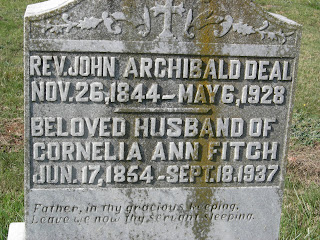Tomorrow, January 1, many churches will celebrate either the First Sunday after Christmas, or observe the Epiphany five days early. But some, like my parish, will address Shakepeare’s question by celebrating the feast of the Holy Name. Once known as the Feast of the Circumcision, the fact that this day is marked on the church calendar reflects the importance of the Jewish naming rite for male babies, which occurs eight days after birth and thus on the church calendar always on January first. It also signifies the importance attached, for Christians, to the name “Jesus”.
Mary and Joseph had each been visited by an angel, who told each one of the coming birth and its significance. Oh, and one other thing: “You will call him Jesus.” And so they do. (One does not, after all, argue with an angel!) The actually name would have been Joshua, or Yehoshua, of which Jesus is the Greek version. The name means God is salvation. Mary’s son was not the first or last to have that name – it was most likely even the first name of Barabbas, the prisoner released by Pilate when Jesus was arrested and condemned to death. But for Christians this Jesus of Nazareth, who is called the Christ (the Messiah or “Anointed One” - a title, not a name) is the Incarnate One who took on our humanity in order to show us God’s salvation.
We call him many, many things - savior, Son of God, Lord, master, rabbi, King of kings, Lord of lords, Lamb of God, Bread of Life, True Vine, Good Shepherd, Logos, Alpha and Omega – and so many more. And so he is, all of those things. But it is the name of Jesus that defines his humanity as one who, according to Paul, “was descended from David according to the flesh", it was as Jesus that he identified himself to Paul on the Damascus road, and it is at that name the letter to the Philippians bids every knee bow.
Jesus. The name of the One who came among us to share our fragile humanity, the One by whom we know God. It is this that we rightfully celebrate on this eighth day of Christmas.


